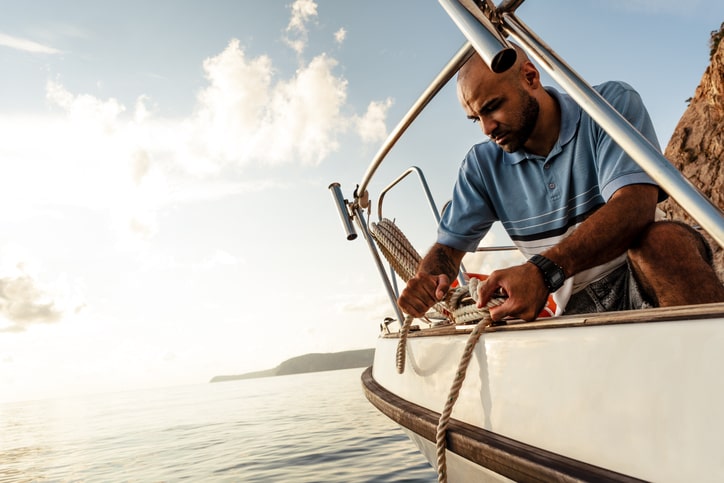Get Our Insider to Property Damage Brochure

Boating Season is on the Horizon: How to Stay Safe on the Water
April 7, 2024At Dewey, Ramsay & Hunt, P.A., our Charlotte boat accident and injury attorneys know that Boating is popular in North Carolina, with over 300,000 registered vessels and 367,285 registered boaters. The state has over 5,000 miles of waterways and over 50 lakes, including Ocracoke Island, which has 16 miles of undeveloped beach.
The Wildlife Resources Commission manages over 200 free public boating access areas open 24/7, and most of the state’s waterways allow power boating.
While boating is part of the state’s culture, it isn’t easy to summon help if you’re out at sea or on a river or lake. Captains, crews, and passengers onboard must be ready for anything.
Responsible boating ensures a safer and more enjoyable experience for everyone on the water.
Here’s a list to help make sure everything goes smoothly when you’re out enjoying your boat.
What Does My Boat Need to Help Keep My North Carolina Family and Me Safe?
Although North Carolinians can enjoy boating year-round, the upcoming summer months kick boating season into high gear and ensuring safety on the water is paramount.
Here are some essential tips to keep in mind:
- Check the Weather
Before heading out, check the weather forecast. Avoid boating in storms or high winds, as these conditions can be dangerous.
- Inspect Your Boat
Conduct a thorough inspection of your boat before each outing. Check for mechanical issues, ensure all safety equipment is onboard and functional, and confirm that fuel and oil levels are sufficient.
- File a Float Plan
Inform someone trustworthy about your boating plans, including your destination, expected return time, and contact information. This ensures that someone can alert authorities if you encounter any issues.
- Wear a Life Jacket
Always wear a properly fitted life jacket, especially if you’re not a strong swimmer or are in rough waters. Ensure everyone on board has a life jacket, too.
- Follow Navigation Rules
Understand and adhere to navigation rules and regulations. Be aware of buoys, markers, and any navigational hazards in the area.
- Avoid Alcohol
Operating a boat under the influence of alcohol is illegal and highly dangerous. Alcohol impairs judgment and coordination, increasing the risk of accidents.
- Stay Alert and Vigilant
Assign someone to look out for other boats, swimmers, or obstacles in the water. Stay attentive and avoid distractions like excessive speed or loud music.
- Practice Safe Boating Techniques
Learn and follow safe boating practices, including properly docking, anchoring, and navigating in different conditions. Consider taking a boating safety course if you’re new to boating or need a refresher.
- Be Prepared for Emergencies
You can enjoy a fun and worry-free boating season by prioritizing safety and being prepared. Keep a well-stocked first aid kit and emergency supplies such as a flashlight, extra batteries, a whistle, and a fire extinguisher. Additionally, ensure you have a reliable means of communication, such as a marine radio or cellphone.
Accidents on the water can be catastrophic, and proper safety precautions, such as wearing life jackets and following navigation rules, significantly reduce the risk of injury or death. Prioritizing safety ensures everyone can have a positive experience on the water without unnecessary risks or incidents detracting from the enjoyment.
Have You Been Injured in a North Carolina Boating Accident?
If you were injured in a boating accident caused by negligence in North Carolina, our personal injury attorneys in Charlotte at Dewey, Ramsay & Hunt want to hear your story during a free consultation by calling (704)-377-3737 or contacting us online.
We provide unique legal services tailored to each client’s needs and do not get paid unless you do.
Your Injury, Our Fight. How can we help you take a stand?
Because every case is different, the description of awards and issues previously managed by our law firm does not guarantee a similar outcome in current or future cases.

